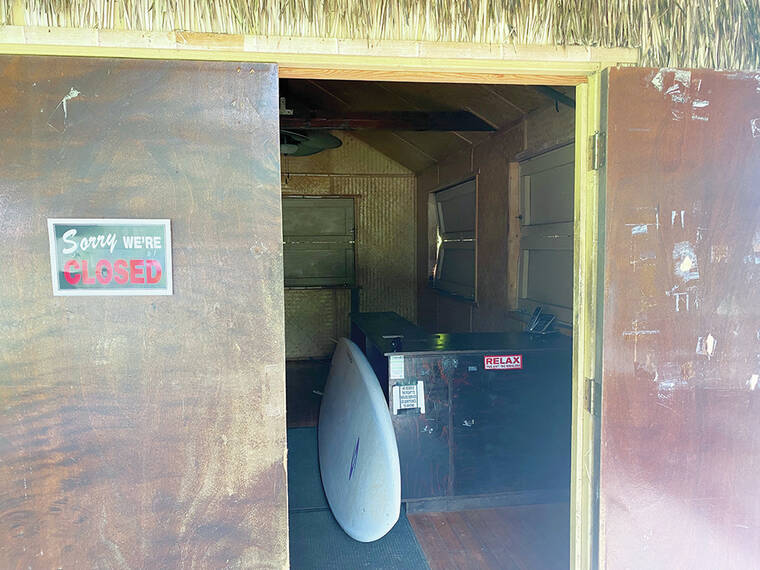WAILUA — The U.S. Environmental Protection Agency Monday levied a $105,543 fine against the state Department of Land and Natural Resources because of an illegal, large-capacity cesspool at Kamokila Hawaiian Village.
As part of the settlement, DLNR agreed to perform an audit to evaluate whether there are large-capacity cesspools present on any of its 1.3 million acres of property throughout the state.
“The DLNR worked with the EPA to develop the final order and DLNR has already commenced scoping the audit process,” said DLNR Senior Communications Manager Dan Dennison.
“The audit will assist the department in determining what properties are still on cesspool in anticipation of the requirement to remove all cesspools by 2050.”
After an auditor is approved by the EPA, the DLNR will have 60 days to submit a list of target properties on Kaua‘i, which contain or may contain a cesspool.
The Kamokila Hawaiian Village has been shuttered since December, after the DLNR did not renew the lease of long-time lessees, the Fernandes family.
The decision to let the lease expire was partly due to the cesspool situation, DLNR said.
The cesspool was closed on July 9, 2020, and the Fernandes family replaced it with temporary restroom facilities shortly thereafter.
William Kihei Fernandes, one of the caretakers of the village, reported in May that he was willing to install a septic tank, but not until he was confident the lease would be renewed.
The EPA banned large-capacity cesspools in 2005, and more than 3,600 large cesspools in Hawai‘i have been closed since then. The EPA estimates roughly 1,400 remain in operation, though, and are used more widely in Hawai‘i than in any other state. The EPA estimates that 143 large-capacity cesspools are present on Kaua‘i.
These cesspools collect and release untreated raw sewage into the ground, where disease-causing pathogens and harmful chemicals can contaminate groundwater.
Groundwater provides 95% of all local water supplies in Hawai‘i. EPA officials view the audit as a major step toward reducing pollution and making the local groundwater supply safer.
“The audit by DLNR, the largest land manager in Hawai‘i, represents a significant step toward EPA’s goal of closing all unlawful, pollution-causing, large-capacity cesspools in Hawai‘i,” said EPA Pacific Southwest Regional Administrator Martha Guzman. “This audit will safeguard public health and protect groundwater by helping DLNR address remaining illegal cesspools.”
In 2017, the state Legislature mandated the conversion of all cesspools to septic by 2050.


